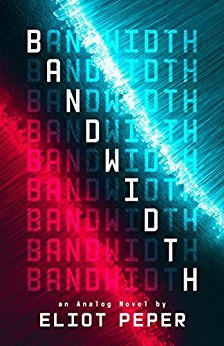More on this book
Community
Kindle Notes & Highlights
“I knew what the world needed. It was obvious. Economists fall all over each other paying lip service to competition. But that’s human logic. Computers don’t care about any of that theoretical stuff. They just care about efficacy. The feed needed solid infrastructure, and a reliable feed would be a platform for a whole new generation of technology companies. I wasn’t trying to dream up some grand vision. It just needed to happen.”
“It was a painful lesson, but eventually I realized that building something meaningful requires you to let go of the obsession with perfection. It requires empowering others and trusting them to do their part, even if they do it differently than you might have. But trust is a two-way street. Autonomy means you’re held accountable.”
Maniacal focus wasn’t always the best path. Sometimes you had to find a new angle, slice a problem into pieces and reassemble it again and again until something clicked.
The tragedy of the commons—overexploitation of a shared but underregulated resource by individuals for selfish gain screwed over the community as a whole. What made matters worse was that the loss was widely distributed, diffusing political will, while those few who captured the gain fought tooth and nail to maintain their benefit as free riders.
“Ultimately, the only power we have is to choose how we see the world,” she continued. “We don’t control what happens. But we do get to decide how to interpret what happens, how to synthesize it, what to do next.”
when you do what you think is right, you’re building a foundation to do more. If you’re optimistic and you turn out to be right, you’ve helped create a better world and you have leverage to improve it further.
If there’s one thing I believe, it’s that optimism compounds better than cynicism. You can either complain about how some French noble predetermined your desire for a lawn, or laugh at how ridiculous life is and build yourself a rock garden. It all depends on your point of view. And at the end of the day, your point of view makes all the difference in the world.”
Given how many people lamented the inevitability of climate change, it was surprising how few actually bet on it. But just like any other addiction, convincing yourself that you were smarter than everyone else was ultimately self-destructive.
We might have invented chocolate and sent a woman to Mars, but humans still couldn’t figure out how to collaborate on fundamental things, like making sure our own planet would support future generations. Science had cut away technical problems like a hot scalpel through butter, but social problems persisted because there was no perfect solution, only the messy ongoing processes of commerce and politics.
History could seem irrelevant to the present’s unrelenting pace of change. What insights could a medieval text bring to bear when science had transformed the human experience so completely?
They were curating his media to emphasize analyses favoring the global carbon tax legislation, prioritizing communications from colleagues who had already pledged their support for the initiative, amplifying any climate-friendly Hsu posts while muting his more ambiguous opinions to create a feedback loop, and injecting thematic entertainment featuring protagonists who succeeded by finally deciding to take a stand.
Time melted into an extended singularity.
Your feed was a mirror that reflected back your accumulated dreams, fears, whims, passions, and very identity.
Discovery consisted not in exploring new lands but in looking at the world through fresh eyes.
Understanding how things came to be frees us to imagine new possibilities.


